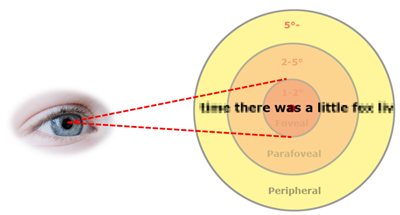
Introduction
Hey Indonesian Diasporas and all aspiring Diasporas out there who are pursuing a tertiary education or looking for a job abroad! Have you ever wondered why sometimes you worked so hard but you never seem to yield significant results, studied but never satisfied with your exam results, read a mountain pile of books yet comprehend none?
I tried to list down all the possible factors that could contribute to the success of an individual, and it boils down to one specific factor: reading. Your reading affects your educational and professional performance, but as an Indonesian who were born and raised in a non-stimulating reading environment, I used to feel that my reading capability (especially in non-mother lounge languages) is dreadingly mediocre.
Often times, I used to feel unenergized if I were to see piles of books with thick text which I am obliged to read and comprehend for my work or studies. I felt exhausted, bored, tired, and eventually, I was not able to retain information from the readings that I did.
But what if I tell you that is a secret, a secret that is only passed down through a group of super-achieving successful individuals such as Warren Buffett and Bill Gates, that can help you to read more, remember, and retain more information from more books? Here are three main tips and tricks that will help you skyrocket your performance in reading.
How to read more and keep remembering it all
1. Identify what you read first
“Know your enemy before you go to a battle”, a wise man once said. Same goes for reading. In order to achieve productivity and performance in your reading, firstly identify what are you going to read? Will it be a textbook? Non-fiction books? Or Academic Papers? After you identify what you are trying to read, list down all the necessary information that you need to acquire and have a specific objective on reading that passage.
Finally, start off your journey conquering your reading materials by reading the important parts first. It may seem obvious, but many people tend to read books by reading all the nitty gritty details from start to finish, not knowing that they’re wasting their time and energy for pointless reading. Swimming your way through a wall of ridiculously thick textbook without knowing where will you go is a dumb move
Here’s my game plan if I were to conquer a book:
- First, read the Front & Back Text, which is the introductory part of the book followed by the epilogue/conclusion. This will give a rough idea of what the writers want to say in the particular book that you are currently reading.
- Skim through the chapters and the subheadings to identify the particular subject that you are interested in.
- After you have decided which part you want to dig deeper, identify the keywords inside the paragraphs of the chapters that you are interested in so that you can skip the stories and get to the relevant information that you need.
Important parts are usually highlighted with keywords, which are words after which a statement is made, and as the definition goes, there is where the meat of the information lies. Keywords include: “Previous, Nowadays, On the other hand, Still, Consider, to sum up, Meaning, Shows, Proves, Usually, Therefore, etc.”
2.Tactically Expand Your Reading Capability and Comprehension
Once you know the overall strategy to conquer your reading passage, it’s time to get tactical. There are three key tactics that I usually use:
Perpetual Expansion
One not-so-obvious way to speed read is to increase the scope of your reading, that is, how many words that your eye can “scan” at a point of time. Our eyes are like a spotlight, if you can increase your line of sight, you may be able to read faster—maybe not 300 percent faster, but every little bit counts.
One way many people do to increase their field of view is by using a pen as a tracker and pacer, like how some people move their finger back and forth across a line as they read. The more advanced version of this tracking is called the “Perpetual expansion”:
- Begin reading each new line at least three words in from the first word of the line and end at least three words in from the last word.
- Try to read the words in groups. Start by reading two words at a time, then three, then four.
- Once you have expanded your horizontal line of view, try to read two or three lines at a time.
With practice, you train your peripheral vision to be more effective by picking up the words that you don’t track directly with your eye.
Avoid Sub-vocalization
Increasing your area of sight maybe one thing that can help to boost your reading speed. You can practice going fast, but when you go too fast you will start losing your comprehension, why? Apart from increasing the scope of vision, most methods for speed reading involve getting rid of sub vocalization!
What is sub vocalization anyway?
Sub vocalization happens when you start “reading” the text out-loud subconsciously but without making any sound. It’s like you want to read the text but you say it out lout in your mind. When you read, do you often hear the words in your mind or even subconsciously say them under your breath? Plenty of studies from universities shows that when you do that when trying to comprehend a difficult reading passage, your comprehension to the reading will fall significantly. Stop this habit of sub vocalization, and you can double, or, even triple your reading speed without compromising your comprehension. Trust me, you can’t read any faster than you talk or read.
Train your brain with impression, association, and repetition
When you read, how much information that you can retain and comprehend in your mind is far more important than how much you remember. The differences are subtle, but when you try to understand some key ways our brain stores information, comprehension plays a key role in speed reading, and to improve your comprehension, here are three things to consider:
Impression
Impression is a form of excitement, be impressed with the text. Your brains will retain information that you are excited about more effectively than those that you hate. One trick to create impression and excitement is to read your reading passage out loud. By turning your passage to a more tangible source of information that we can hear, our sensitivity to information can greatly improve.
Association
Another trick to improve your comprehension is by linking what you currently reading to something that you have previously known. If there’s a particular concept or principle that you wish to retain, think back to an event in which you were a part of the specific example involving the principle. If you are reading a textbook with a bunch of formulas, try to associate it with what you previously learn in, maybe, primary school. By linking prior knowledge to what you currently read through association, your memorization and the construction of memory palaces in your brain will highly improve.
Repetition and Action
Re-reading a certain passage, then highlighting or writing it down, returning to the reading passage, and doing the repetition again and again will help you get better and better. The more you repeat and work on the passage that you are doing, the more you will retain the information contained inside. When you repeat, and taking notes or highlighting the important parts that you want to learn, you will help not only your short term memory but also train your long-term memory part of your brain that will help you remember more.
3. Practice Makes Perfect

Practice, practice, practice! If you never practice and you live in a non-stimulating environment for reading, you will never get better at it. If you look at it in terms of raw numbers, the average person watches 35 hours of TV each week, the average commute time is one hour per day round-trip, and you can spend at least another hour per week for grocery shopping. To sum up, that’s a total of 43 hours per week, and at least some of that could be spent for practicing.
Will speed reading always be the optimal solution for my success goals? Not always. Comprehension still matters, and some reports say that speed reading or skimming leads to forgotten details and poor retention. But all in all, if you can increase your words per minute count marginally while still maintaining your comprehension on your reading, your mental capabilities will increase, and it can certainly pay dividends in your quest to read more.









